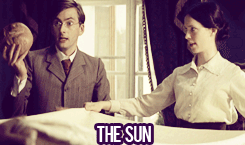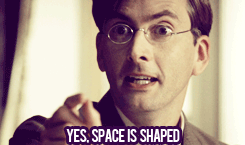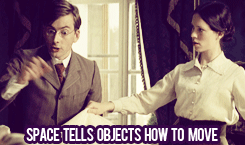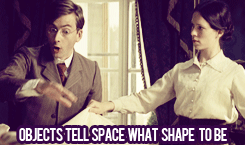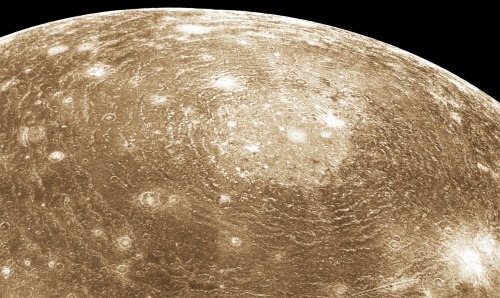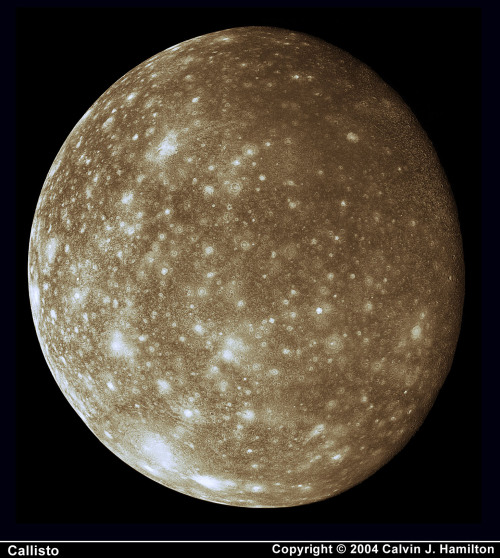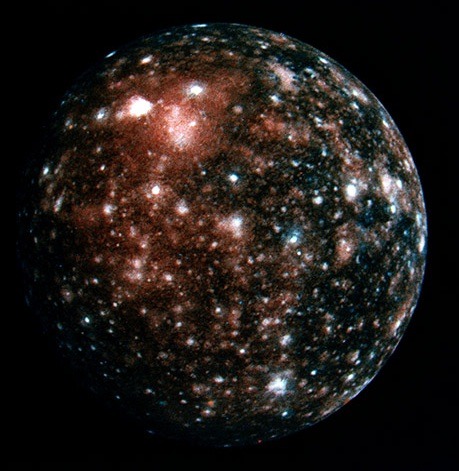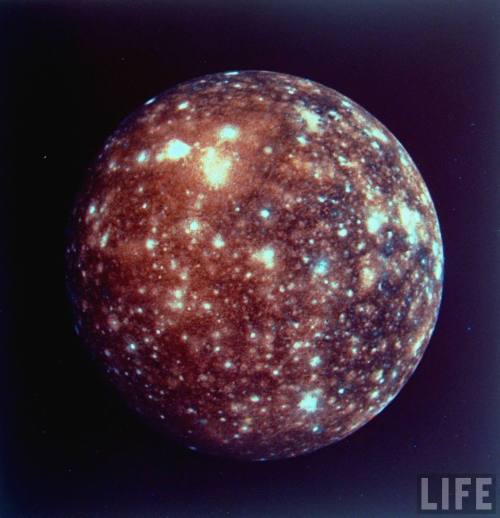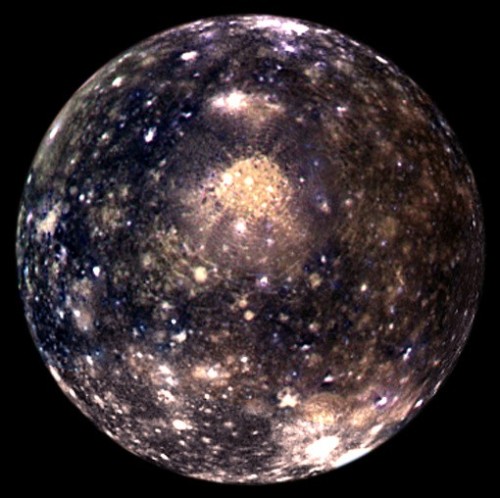Happy Labor Day. Today I Learned About Probably The First Strike To Happen IN SPACE.
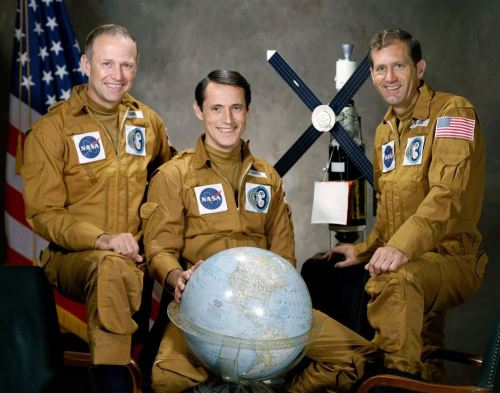

Happy Labor Day. Today I learned about probably the first strike to happen IN SPACE.
More Posts from Fillthevoid-with-space and Others

No matter where you hang your stockings, I wish you a very Merry Christmas!
The Beauty of Webb Telescope’s Mirrors
The James Webb Space Telescope’s gold-plated, beryllium mirrors are beautiful feats of engineering. From the 18 hexagonal primary mirror segments, to the perfectly circular secondary mirror, and even the slightly trapezoidal tertiary mirror and the intricate fine-steering mirror, each reflector went through a rigorous refinement process before it was ready to mount on the telescope. This flawless formation process was critical for Webb, which will use the mirrors to peer far back in time to capture the light from the first stars and galaxies.

The James Webb Space Telescope, or Webb, is our upcoming infrared space observatory, which will launch in 2019. It will spy the first luminous objects that formed in the universe and shed light on how galaxies evolve, how stars and planetary systems are born, and how life could form on other planets.
A polish and shine that would make your car jealous

All of the Webb telescope’s mirrors were polished to accuracies of approximately one millionth of an inch. The beryllium mirrors were polished at room temperature with slight imperfections, so as they change shape ever so slightly while cooling to their operating temperatures in space, they achieve their perfect shape for operations.

The Midas touch
Engineers used a process called vacuum vapor deposition to coat Webb’s mirrors with an ultra-thin layer of gold. Each mirror only required about 3 grams (about 0.11 ounces) of gold. It only took about a golf ball-sized amount of gold to paint the entire main mirror!

Before the deposition process began, engineers had to be absolutely sure the mirror surfaces were free from contaminants.

The engineers thoroughly wiped down each mirror, then checked it in low light conditions to ensure there was no residue on the surface.

Inside the vacuum deposition chamber, the tiny amount of gold is turned into a vapor and deposited to cover the entire surface of each mirror.

Primary, secondary, and tertiary mirrors, oh my!
Each of Webb’s primary mirror segments is hexagonally shaped. The entire 6.5-meter (21.3-foot) primary mirror is slightly curved (concave), so each approximately 1.3-meter (4.3-foot) piece has a slight curve to it.

Those curves repeat themselves among the segments, so there are only three different shapes — 6 of each type. In the image below, those different shapes are labeled as A, B, and C.

Webb’s perfectly circular secondary mirror captures light from the 18 primary mirror segments and relays those images to the telescope’s tertiary mirror.

The secondary mirror is convex, so the reflective surface bulges toward a light source. It looks much like a curved mirror that you see on the wall near the exit of a parking garage that lets motorists see around a corner.

Webb’s trapezoidal tertiary mirror captures light from the secondary mirror and relays it to the fine-steering mirror and science instruments. The tertiary mirror sits at the center of the telescope’s primary mirror. The tertiary mirror is the only fixed mirror in the system — all of the other mirrors align to it.

All of the mirrors working together will provide Webb with the most advanced infrared vision of any space observatory we’ve ever launched!
Who is the fairest of them all?
The beauty of Webb’s primary mirror was apparent as it rotated past a cleanroom observation window at our Goddard Space Flight Center in Greenbelt, Maryland. If you look closely in the reflection, you will see none other than James Webb Space Telescope senior project scientist and Nobel Laureate John Mather!

Learn more about the James Webb Space Telescope HERE, or follow the mission on Facebook, Twitter and Instagram.
Make sure to follow us on Tumblr for your regular dose of space: http://nasa.tumblr.com.
Heya, if you like space maybe you’ll like this comic? It’s one of my favorites and it’s ending soon and it’s all online for freebies! The spaceships are fish and folks get to go around fixing up abandoned ruins in space. It’s utterly beautiful. It’s also ending this month!









We’ll make it out eventually.
http://www.onasunbeam.com/
(New chapters coming soon)
Shooting for an April first post date! I just started researching and hooboy, I am going to go way way way way down the rabbit hole of tangents. I think everything is interesting and cool.
I'm reading Starlight Detectives pretty hard cuz new episode goes up on Monday and let me tell you, I now have a very deep appreciation for the photographs we have of space.

Small Magellanic Cloud: Stunning Infrared Image
For the love of all that’s good and proper click here and zoom way into this image. It’s more than beautiful. The fact that it’s infrared means that we’re able to see past a lot of the dust that would otherwise block our view.
(Image credit: ESA/VISTA)
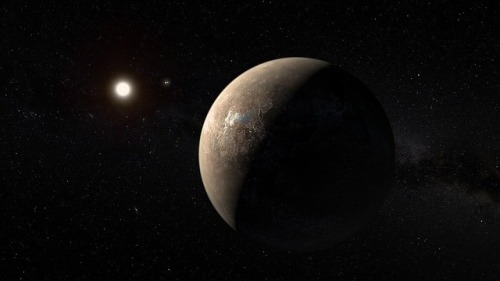
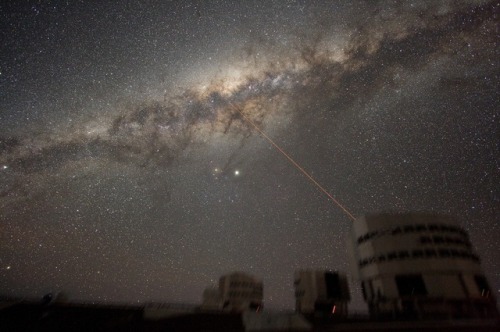
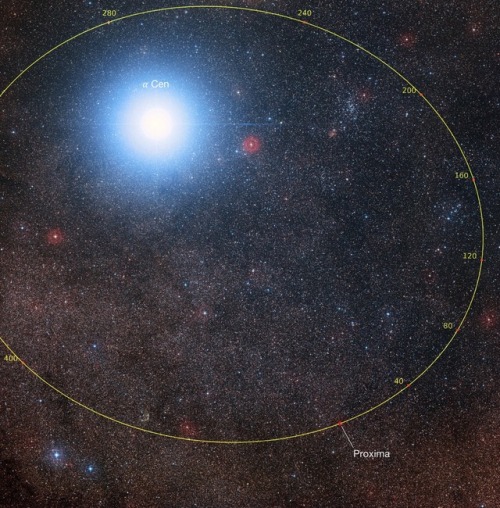
Life orbiting our closest star?
A planet has been found orbiting in the habitable zone of the closest star to earth, 4.2 light years away, named Proxima Centauri. The exoplanet, known as proxima b, has the mass of 1.27 earths but because of the shape of its orbit, the chances of it harbouring liquid water are fantastic. This vastly improves the chances that the planet sustains alien life.






The Meaning of Color in Hubble Images: An interactive slideshow that illustrates how the Hubble Space Telescope incorporates light in multiple wavelengths to produce it’s stunning imagery.
Space Station Crew Members Walk In Space to Connect Docking Adapter Component
Outside the International Space Station, Expedition 50 Commander Shane Kimbrough and Flight Engineer Peggy Whitson of NASA conducted a spacewalk March 30 to connect the newly relocated Pressurized Mating Adapter-3 (PMA-3) to the Harmony module in preparation for the delivery of an International Docking Adapter to PMA-3 to which U.S. commercial crew spacecraft will link up to in the years ahead. The mating adapter was robotically relocated from the port side of the Tranquility module to Harmony March 26 by ground controllers. Kimbrough and Whitson also installed the second of two upgraded computer relay boxes on the station’s truss and installed shields and covers over PMA-3 and the vacant port on Tranquility to which the PMA had been attached. It was the 199th spacewalk in support of space station assembly and maintenance, the sixth in Kimbrough’s career and the eighth for Whitson, who surpassed NASA’s Suni Williams for most spacewalks and most aggregate spacewalking time by a female.
-
 thechimeraclass liked this · 2 weeks ago
thechimeraclass liked this · 2 weeks ago -
 kiiwiighost liked this · 2 weeks ago
kiiwiighost liked this · 2 weeks ago -
 shekshiny reblogged this · 3 weeks ago
shekshiny reblogged this · 3 weeks ago -
 shekorla liked this · 3 weeks ago
shekorla liked this · 3 weeks ago -
 catalllo reblogged this · 4 weeks ago
catalllo reblogged this · 4 weeks ago -
 greythegryphon reblogged this · 1 month ago
greythegryphon reblogged this · 1 month ago -
 badass liked this · 1 month ago
badass liked this · 1 month ago -
 weelilbit reblogged this · 1 month ago
weelilbit reblogged this · 1 month ago -
 taylorswift221 reblogged this · 1 month ago
taylorswift221 reblogged this · 1 month ago -
 taylorswift221 liked this · 1 month ago
taylorswift221 liked this · 1 month ago -
 storedinthefridge liked this · 1 month ago
storedinthefridge liked this · 1 month ago -
 feralwizardbun reblogged this · 1 month ago
feralwizardbun reblogged this · 1 month ago -
 princeoflife123 reblogged this · 1 month ago
princeoflife123 reblogged this · 1 month ago -
 lavvythejackalope liked this · 1 month ago
lavvythejackalope liked this · 1 month ago -
 the-maddest-robot liked this · 1 month ago
the-maddest-robot liked this · 1 month ago -
 gwerthdaro reblogged this · 1 month ago
gwerthdaro reblogged this · 1 month ago -
 latveria-official reblogged this · 1 month ago
latveria-official reblogged this · 1 month ago -
 latveria-official liked this · 1 month ago
latveria-official liked this · 1 month ago -
 radioloria liked this · 1 month ago
radioloria liked this · 1 month ago -
 weelilbit reblogged this · 1 month ago
weelilbit reblogged this · 1 month ago -
 toomanyschwas reblogged this · 1 month ago
toomanyschwas reblogged this · 1 month ago -
 toomanyschwas liked this · 1 month ago
toomanyschwas liked this · 1 month ago -
 warderfromtheborder reblogged this · 1 month ago
warderfromtheborder reblogged this · 1 month ago -
 conquering-king reblogged this · 1 month ago
conquering-king reblogged this · 1 month ago -
 lucky-strike-14 reblogged this · 1 month ago
lucky-strike-14 reblogged this · 1 month ago -
 dwarf-vader-of-middle-earth reblogged this · 1 month ago
dwarf-vader-of-middle-earth reblogged this · 1 month ago -
 sunshinehunter liked this · 1 month ago
sunshinehunter liked this · 1 month ago -
 viiridiangreen reblogged this · 1 month ago
viiridiangreen reblogged this · 1 month ago -
 captain-madtitan liked this · 1 month ago
captain-madtitan liked this · 1 month ago -
 theapartmentcryptid reblogged this · 1 month ago
theapartmentcryptid reblogged this · 1 month ago -
 thenervetoservetheturn reblogged this · 1 month ago
thenervetoservetheturn reblogged this · 1 month ago -
 thelifeandtimesofwhatthefuck reblogged this · 1 month ago
thelifeandtimesofwhatthefuck reblogged this · 1 month ago -
 friendlyneighborhoodmadbi-entist reblogged this · 1 month ago
friendlyneighborhoodmadbi-entist reblogged this · 1 month ago -
 ln-g reblogged this · 1 month ago
ln-g reblogged this · 1 month ago -
 ln-g liked this · 1 month ago
ln-g liked this · 1 month ago -
 awhnuts reblogged this · 1 month ago
awhnuts reblogged this · 1 month ago -
 moonthemagical liked this · 1 month ago
moonthemagical liked this · 1 month ago -
 si1v3rpho3n1x reblogged this · 1 month ago
si1v3rpho3n1x reblogged this · 1 month ago -
 lilfoxay reblogged this · 1 month ago
lilfoxay reblogged this · 1 month ago -
 forestyoshimi liked this · 1 month ago
forestyoshimi liked this · 1 month ago -
 nerdyquestier reblogged this · 1 month ago
nerdyquestier reblogged this · 1 month ago -
 nerdyquestier liked this · 1 month ago
nerdyquestier liked this · 1 month ago -
 tossed-bricks liked this · 1 month ago
tossed-bricks liked this · 1 month ago -
 notanrp-wow liked this · 1 month ago
notanrp-wow liked this · 1 month ago -
 isthebootylogical liked this · 1 month ago
isthebootylogical liked this · 1 month ago -
 thewindisstillthere liked this · 1 month ago
thewindisstillthere liked this · 1 month ago -
 queenpallascat reblogged this · 1 month ago
queenpallascat reblogged this · 1 month ago -
 queenpallascat liked this · 1 month ago
queenpallascat liked this · 1 month ago -
 thelemonbard liked this · 1 month ago
thelemonbard liked this · 1 month ago -
 zeltmg liked this · 1 month ago
zeltmg liked this · 1 month ago
A podcast project to fill the space in my heart and my time that used to be filled with academic research. In 2018, that space gets filled with... MORE SPACE! Cheerfully researched, painstakingly edited, informal as hell, definitely worth everyone's time.
243 posts

